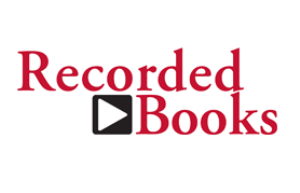
Ebooks continue to be one of the most promising areas of growth for book publishers. Unfortunately for libraries, that growth has led many of the largest publishing houses to take a very guarded approach with the field—offering libraries ebook titles at a significant markup, licensing titles only with restrictive terms or embargo periods, or simply refusing to enter into ebook agreements with libraries at all.
Recorded Books, the Prince Frederick, Md.-based audiobook publisher, is hoping to ease some of these concerns and open up the library ebook market next year with a new platform. In a saturated and non-consolidated field, Recorded Books hopes to distinguish itself with a platform that will allow publishers to set their ebook licensing terms for libraries on a title-by-title and market-by-market basis, and then analyze the impact of those decisions by comparing circ and consumer sales at the zip code level. The platform also aims to make it appealing for libraries to manage a collection of ebooks sold to them under a variety of terms.
Recorded Books’ President and CEO Rich Freese said that he understands the uncertainty that the industry is facing. The sudden popularity of ebooks has put publishers in uncharted territory, and they are unsure how availability in libraries will affect consumer sales.
However, he said that publisher arguments about needing more “friction” in library ebook transactions were misguided.
“Ninety-nine percent of the publishers I’m talking to are still talking about the one-book, one-user model,” he said. “So, when you go onto OverDrive and look at recent releases [at your library], can you ever check out the new book that just came out last week? There’s always a long waiting list. And if the average book is checked out for three weeks, and you’ve got 10 people ahead of you, that’s already a lot of ‘friction.’”
Likewise, Freese argues that publishers are doing themselves a disservice by not offering libraries the opportunity to promote backlist titles, or ebooks by their new authors and mid-list authors.
“That’s what libraries do best—introduce new authors to the broadest spectrum of new readers,” he said. “Why would you want to put the same kind of terms on the bestseller, where you’ve already got a market, compared with the author you’re trying to build?”
Changing Market
The new platform, which will be beta-testing in early 2013, will allow publishers significant flexibility to mix and match licensing terms based on the type of book or the specific market, according to Freese. For example, a publisher could decide that new ebook titles by bestselling authors will have a 26 loan cap, while a new title by a new author might be licensed to libraries at a promotional rate with no cap.
Or, backlist titles could be licensed with more liberal terms to a library in a specific market where there is a large local interest, while those same titles are licensed under more restrictive terms in other areas. By offering publishers the opportunity to view circ data at the zip-code level and compare with consumer sales data in the same area, the system will give these businesses a better sense of how to work with libraries, Freese said.
When the publishing industry dealt almost exclusively in print, selling books to libraries under a single set of terms made more sense, Freese said. Now that digital distribution makes it possible to take a more granular approach, publishers’ expectations are beginning to change.
“Publishers want to have a better vision of what’s going on in libraries and be able to experiment in a way that makes them comfortable with their overall business model,” he said.
The new platform has presented some significant technical challenges, Freese said.
“We have to be able to track every single copy of every single book we sell to every single library, and potentially apply a different set of business rules to each one of those books… We then have to flow [payments] through our accounting system to make sure that we are compensating publishers correctly.”
For libraries, the prospect of separately managing still more license terms, including some explicitly experimental, is likely to give many collection managers pause. For its part, Recorded Books says the platform will include dashboards and reporting systems that maintain records of the terms that each individual title was purchased under, by each individual library in a system, even if a publisher later changes those terms for other sales.
“We’re never going to be able to control what the publishers do, and the publishers can’t, by law, conspire to agree on terms of sale,” Freese said. “But if we can give libraries a platform that tells them, ‘this title is 26 circs, you’ve got five left, this title is a two year license, you’ve got three months left’ … those are the things you need to know to manage your collection effectively.”
Freese and officials from Recorded Books are in the process of meeting with major publishers and several major library systems to discuss additional features that the system could incorporate.



This sounds nightmarishly complex to manage, for both publishers and libraries. And Recorded Books has a weak track record with technology platforms.
True about the complexity. But I think Freese is right about this being the future. Publishers still have their guaranteed hits, and that’s what they’re worried about right now. To maintain an ecosystem where they can still cultivate new talent, publishers could really use the help of libraries right now. And I think a system where they could implement several different pricing models would really help facilitate that.
new model: buy-and-donate